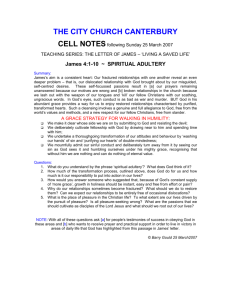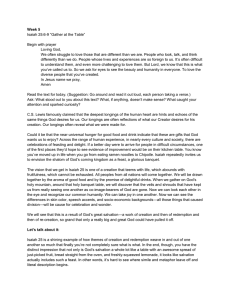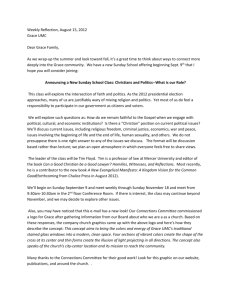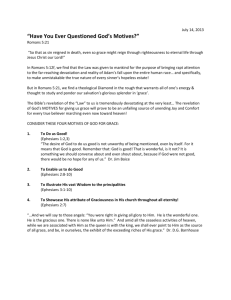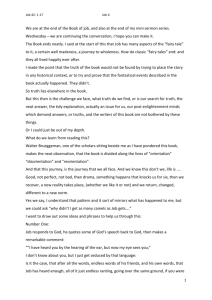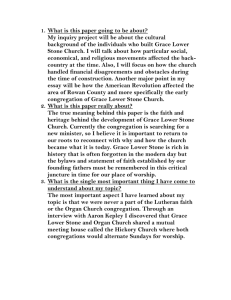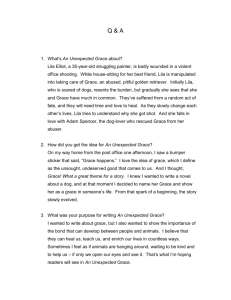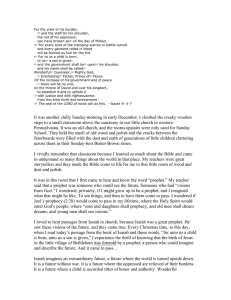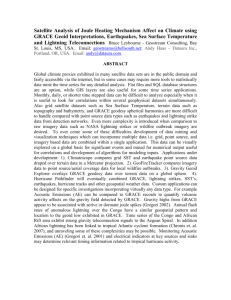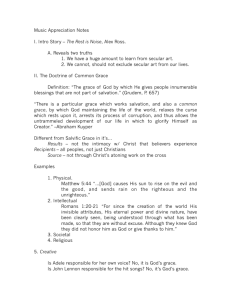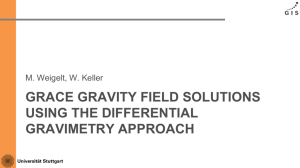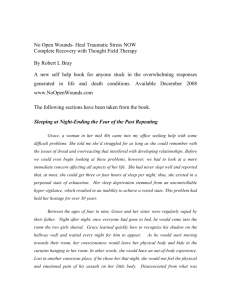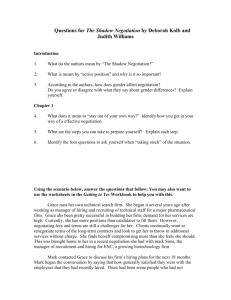Eighteenth Sunday after Pentecost (Proper 23 A)
advertisement
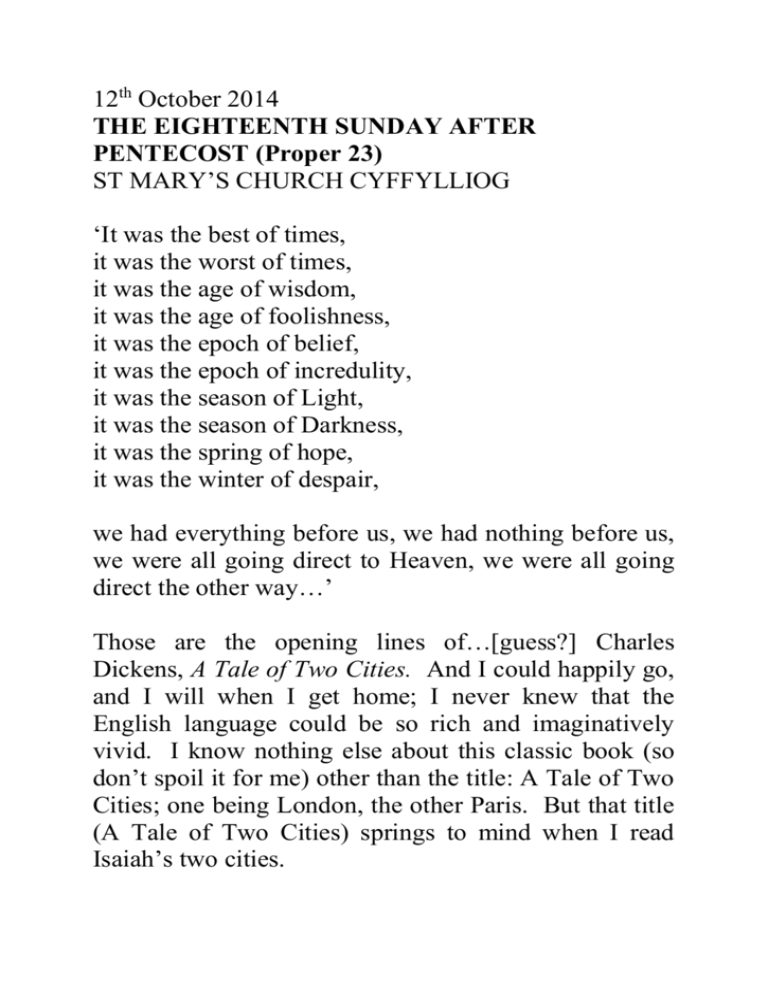
12th October 2014 THE EIGHTEENTH SUNDAY AFTER PENTECOST (Proper 23) ST MARY’S CHURCH CYFFYLLIOG ‘It was the best of times, it was the worst of times, it was the age of wisdom, it was the age of foolishness, it was the epoch of belief, it was the epoch of incredulity, it was the season of Light, it was the season of Darkness, it was the spring of hope, it was the winter of despair, we had everything before us, we had nothing before us, we were all going direct to Heaven, we were all going direct the other way…’ Those are the opening lines of…[guess?] Charles Dickens, A Tale of Two Cities. And I could happily go, and I will when I get home; I never knew that the English language could be so rich and imaginatively vivid. I know nothing else about this classic book (so don’t spoil it for me) other than the title: A Tale of Two Cities; one being London, the other Paris. But that title (A Tale of Two Cities) springs to mind when I read Isaiah’s two cities. The first city is “a heap”, a “ruin” never to be rebuilt; a devastation to set fear in the heart of the ruthless. This city is a representation of Godlessness. It is a catastrophic ending. The second city is one rich with food and wine, in which all are welcome. It is a representation of God bounty and a heavenly banquet to complete all time. Both of these cities are God’s plan, and for that Isaiah praises the Lord, “I will praise your name for have done wonderful things, plans formed of old.” What Isaiah sees is the unfolding of a plan which was God’s from the very beginning, right from the Genesis of creative possibilities. There are different imaginary outcomes; one good and one bad, but both are within the bigger plan of God’s timelessness. It is an interesting exercise to try and imagine the end, and with an end in clear vision the present begins to change shape. For example, if you imagine your own funeral and think about who would like to be there, and what you would hope might be said about you. If you imagine being gone from this world, then what lasting impression would you like to have made, and upon whom? This sort of exercise focuses the mind on what do you really think is most important? Who are you really? Who do you want to be? Who are you within God, not within the superficial? You have to be weary when imagining the end of all things though. Since thinking about the future can become an anxiety driven perpetual of ifs and buts. That is not the end vision of the Gospel. That is not Christian eschatology. No, the Christian eschatology is one which fills us with peace, the peace which the world cannot give; that peace which no other human person can give to you, but which God longs you to bath in. This is the peace which “surpasses all understanding.” “The Lord is here,” says Saint Paul, and that is no threat. It is an eschatological statement of immense hope welling up from inside and thundering out into the world to reorder the world in accordance with the great vision of God’s grace. The grace of a missionary God who continues to go out, in order to continue, to invite people from all over the place is imaged again in this parable of the kingdom of God. It is like a great wedding banquet all laid out and ready for the guests, and anyone who doesn’t come to the feast must be a fool. But although all are welcome you cannot just waltz in. Notice that the one without a wedding robe is not just thrown out of the feast but is thrown into outer darkness (again, another image of Godlessness). “Many are called, but few are chosen” (Matthew 22. 14). It is very hard to put into words how the grace of God is fully welcoming and all encompassing, and yet selective in some way. It is much easier to preach the hospitality of God than the demands of God. But there we have it: there is in some vital way an element of reality in trying to speak of the demands of God, even though it is so difficult to put those demands into words. Yes, we have the Ten Commandments, but what I am talking about is an individual’s access into the grace of God, which, as we see by looking around us, some appear to have much more difficulty with than others. There are plenty of people who would like to experience the grace of God, for themselves, but it somehow defies them. They keep hearing about it but they never hear it. They keep seeing it but they never see it. For some it is a distant memory so very hard to recall. How do you go the way which leads to the ultimately good end, and, how do you not go the way which leads to the ultimately destructive end. How do you actually do that? Well, now it’s getting interesting, or not as the case may be. And just as we have gotten to the really hard question I will quickly finish. But I won’t finish without saying that the question could be more useful to us than any answer, and we should never be to sure of our own answers anyway. Amen.


